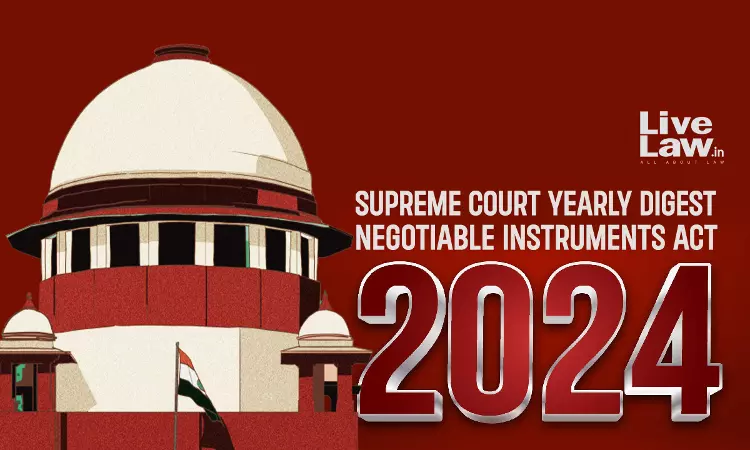Supreme Court Yearly Digest 2024: Negotiable Instruments Act, 1881
Amisha Shrivastava
26 Dec 2024 11:52 AM IST

Next Story
26 Dec 2024 11:52 AM IST
Director of the company not responsible for its day-to-day affairs cannot be held liable for dishonour of cheque. (Para 10) Susela Padmavathy Amma v. Bharti Airtel Ltd., 2024 LiveLaw (SC) 237Section 138 – Maintainability of suit – Criminal law can be set in motion by anyone, even by a stranger or legal heir. A complaint under Section 138, preferred by the Power of Attorney Holder is...
